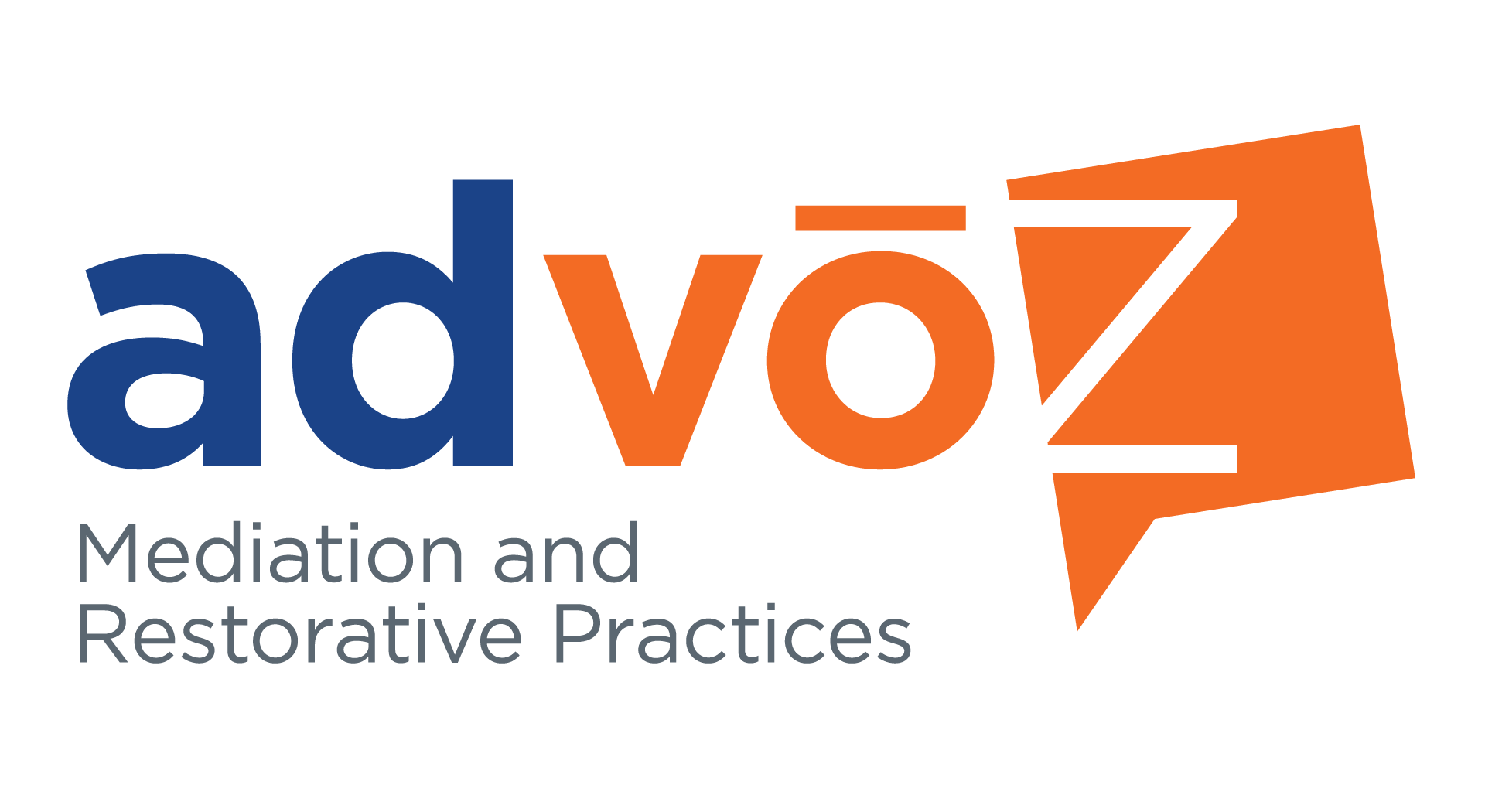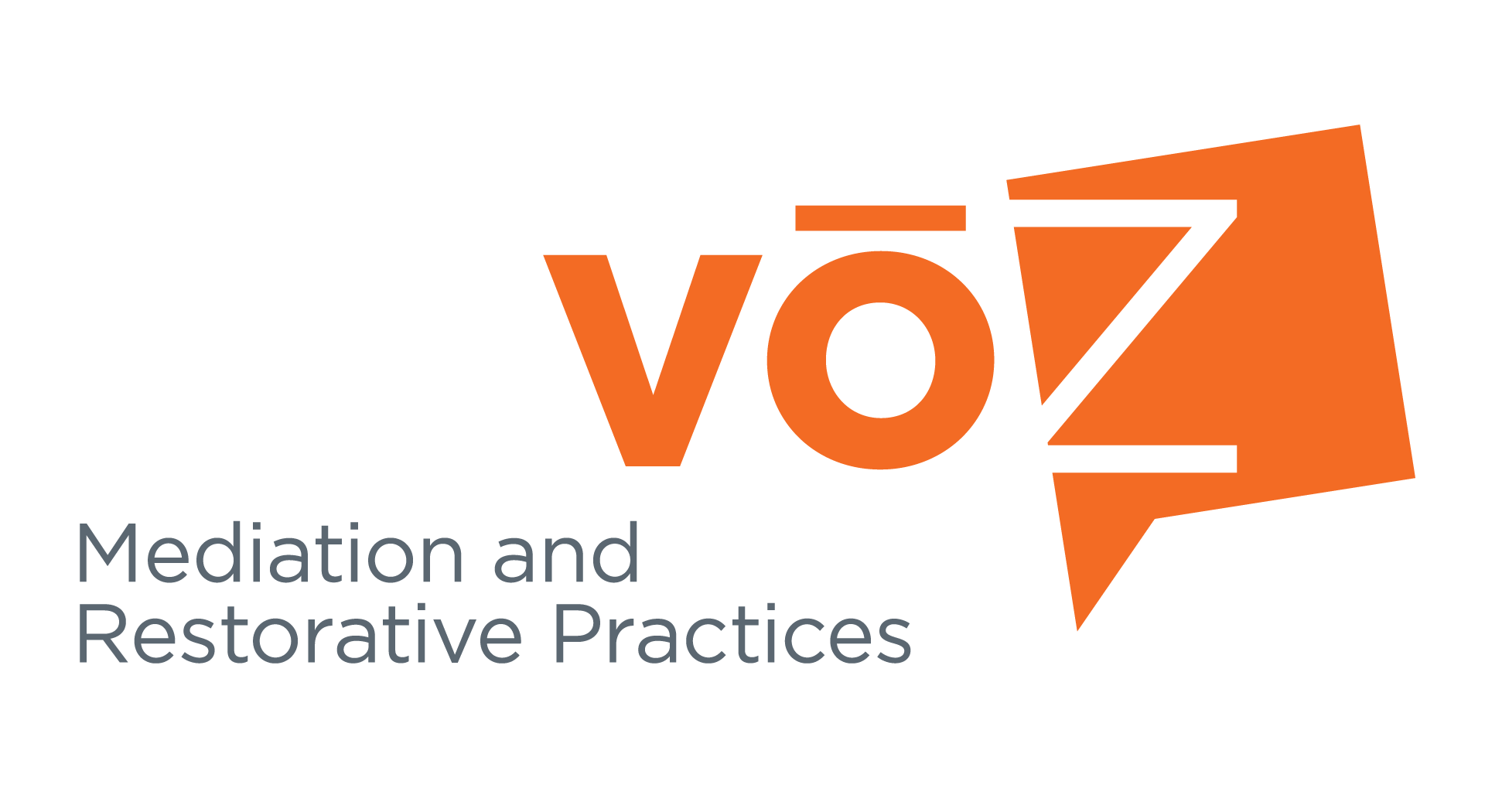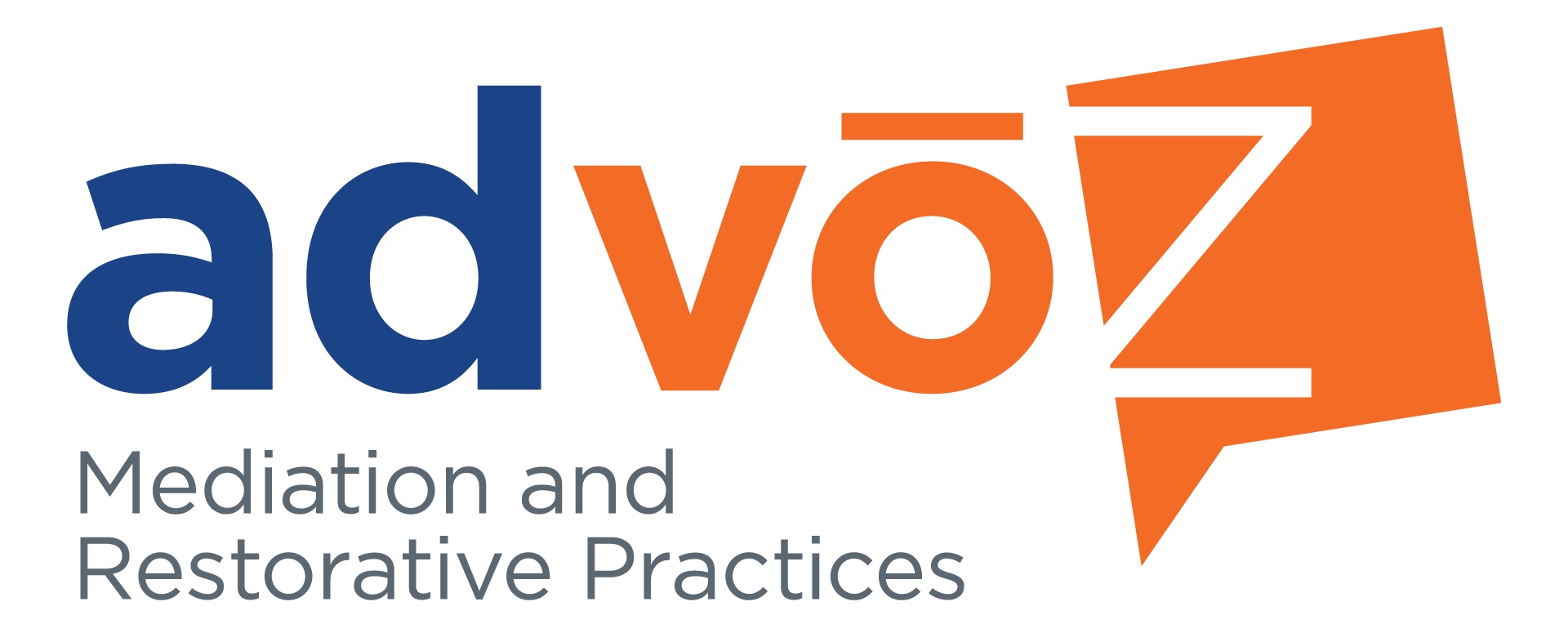Restorative Schools
Building Your School’s Capacity for inclusive support & Accountability
Restorative Schools focus on building a community of supporting behavior that both prevents and repairs harm, not only among students but across the entire school community
We want our youth to fulfill their potential. Whether in classrooms or in disciplinary proceedings, schools can use Restorative Practices to strengthen a culture of belonging, accountability and academic success.
Restorative Justice in Schools
Advoz can collaborate with your school and district to improve school climate, academic achievement and inclusive disciplinary responses with a phased implementation of Restorative Practices. This project would build capacity for your staff to understand and implement both proactive and responsive skills for the classroom, interpersonal relations, small group conflicts and larger group circle processes
Restorative Schools Can:
- Increase student social and academic fulfillment and success
- Develop an inclusive school climate that builds community and addresses harm together
- Enhance accountability based on strong relationship, rather than isolation and shame
- Increase alternatives to and reduce suspensions and expulsions, especially law enforcement and juvenile court referrals where more effective alternatives are available
- Build on the unique strengths and challenges of your district and school to understand how Restorative Practices might be most effectively applied
- Identify how institutional structures in the school and beyond can inhibit and promote Restorative Practices and transformative justice
Why Restorative Justice Practices in Schools?
The evidence is mounting that zero-tolerance discipline strategies are counter-productive. Removing young people from their learning environments undermines their ability to learn, navigate challenging social and emotional situations, complete their education and succeed in their adult life. Safety and success require connection and trust. Restorative Practices are an inclusive and empowering approach to building community and addressing harm caused when youth (and adults) act out. As a range of tools for enhancing interpersonal and group accountability, Restorative Practices have had proven results improving student performance and school climate while reducing exclusionary discipline and truancy.
Turn this…

Into this…

Phases of Restorative Schools
Best practices in Restorative Justice recommend 3-5 years to infuse a restorative culture widely held by students and staff across a school district. Yet we recognize that not every school is prepared to make a full commitment to organizational change that is not yet understood by your stakeholders. Generally, our recommended implementation includes:
1.
Phase One
Takes place over the first 2-3 years, focusing on impacting the most students by strengthening Tier 1 school climate through all-school assessment and professional development that supports proactive community building starting in the classroom.
2.
Phase Two
Takes place generally in years 2-3, focusing on repairing relationships and harm by addressing Tier 2 disciplinary concerns within the school using restorative communication and circles.
3.
Phase Three
Takes place generally in years 3-4, focusing on addressing harm in the most challenging student situations.

Call or e-mail to find out more: krista@advoz.org or (717) 397-2404
Monday-Friday, 9 AM – 4 PM
Advoz does not discriminate on the basis of race, color, national origin, religion, sex, sexual orientation, gender identity, disability, or age. Advoz does not retaliate against persons who file a complaint about discrimination or participate in a discrimination proceeding.
Find Resolution and Healing
We believe there is always a possibility of restoration.
Let us create those possibilities together.
Advoz: Mediation, Restorative Justice & Training in Pennsylvania

